Pineweed, Orangegrass - Hypericum gentianoides
|
Hypericum gentianoides - Pineweed, Orangegrass. Some authorities continue to include the Hypericum (St. John's Wort) genus in the plant family Clusiaceae (including the USDA Plants Database,) but relatively recent molecular studies have resulted in establishment of the Hypericaceae family, for which Hypericum is the type genus, although there are at least two other genera in that new classification. It should be noted that at least one of those, the genus Triadenum, is composed of species that have been classified in the genus Hypericum at one time or another, so perhaps the new family Hypericaceae is comprised of what was the Hypericum genus, which is now further broken down into multiple genera. Hypericum is a large genus of nearly 500 species worldwide, over 50 of which are found in North America.
Hypericum gentianoides is a widespread eastern species, found in sandy soils in every state east of the Mississippi as well as all those bordering that river on the west, and in Oklahoma and Texas. It is also found in Ontario and Nova Scotia in Canada. It is listed as Endangered in Iowa.
Found in:
AL, AR, CT, DC, DE, FL, GA, IA, IL, IN, KY, LA, MA, MD, ME, MI, MN, MO, MS, NC, NH, NJ, NY, OH, OK, PA, RI, SC, TN, TX, VA, VT, WI, WV
Leave comments on Hypericum gentianoides at this link. | 
Distribution of Hypericum gentianoides in the United States and Canada:
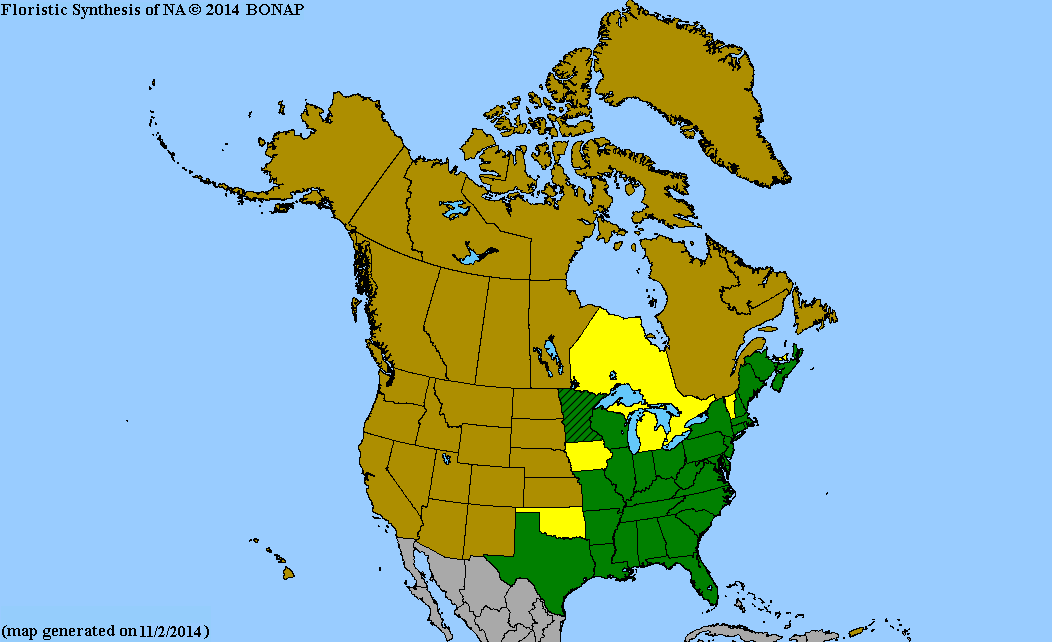
Map courtesy of The Biota of North America Program.
Map color key
Search Our Database: Enter any portion of the Scientific, Common Name, or both.
Do a general Google search of the entire site:
#ad
 Follow USWildflowers on Twitter
| | Site: May Prairie State Natural Area, Coffee County, TN Date: 2017-July-10 | Photographer: Gerald C. Williamson
Nikon D7000
Tamron SP 90MM f/2.8 AF Macro | | With the exception of the yellow flowers, Hypericum gentianoides plants appear very pine needle-like, giving the Pineweed common name. As the flowers age, the shriveling petals turn more orange than golden-yellow; I had speculated that's the source of the Orangegrass common name, but according to the New England Wildflower Society, the name comes from the citrus- or peach-like aroma of the crushed leaves (I wonder if this is instead the stems, since the leaves are so tiny.) | | 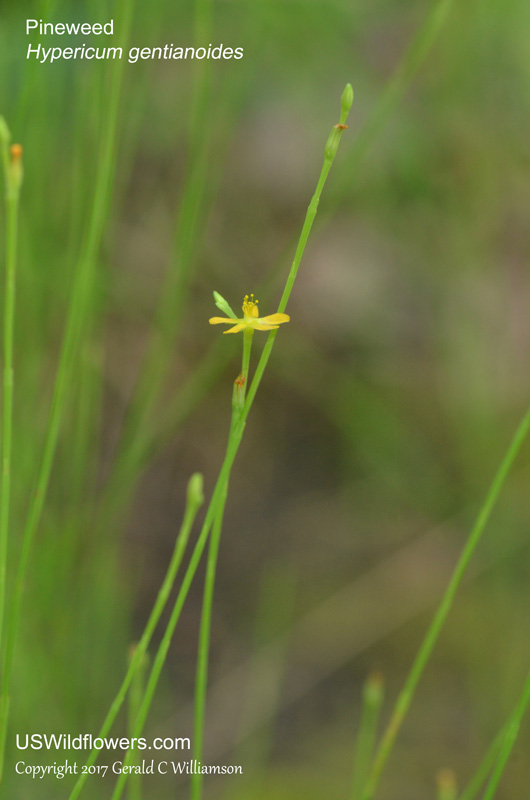
| | Site: May Prairie State Natural Area, Coffee County, TN Date: 2017-July-10 | Photographer: Gerald C Williamson
Nikon D7000 | | The flowers of Hypericum gentianoides is quite small, about .3" across. It has 5 yellow orange-yellow to golden-yellow petals, and 5 to 11 stamens, fewer than most other St. John's Worts. | | Click on the photo for a larger image
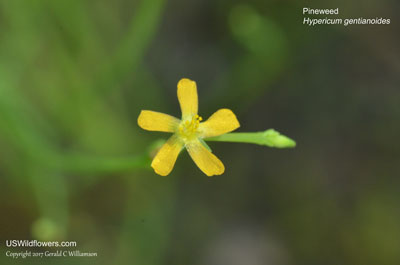
| | Site: May Prairie State Natural Area, Coffee County, TN Date: 2017-July-10 | Photographer: Gerald C Williamson
Nikon D7000 | | The scale-like leaf of Pineweed is tiny, less than 1/4" long. It is sessile, appressed against the stem, and is triangular to linear with an awl-shaped tip. | | Click on the photo for a larger image
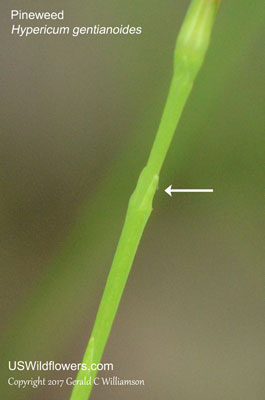
| | Site: May Prairie State Natural Area, Coffee County, TN Date: 2017-July-10 | Photographer: Gerald C Williamson
Nikon D7000 | | Hypericum gentianoides grows to about 12 inches tall, and is many-branched. The branches are "strict" - stiff, narrow, and upright (it was a notable research item to finally get a specific definition of what "strict" meant within the context of botany.) Within the inflorescence, the branching is usually monochasial - only a single branch will arise from another branch. | | Click on the photo for a larger image
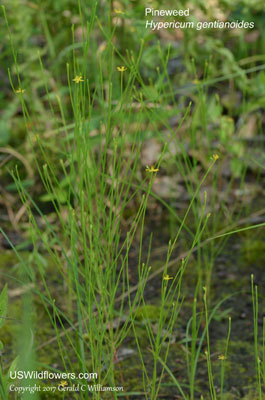
|
References used for identification and information:
|
|
| |
| #ad
|
|






